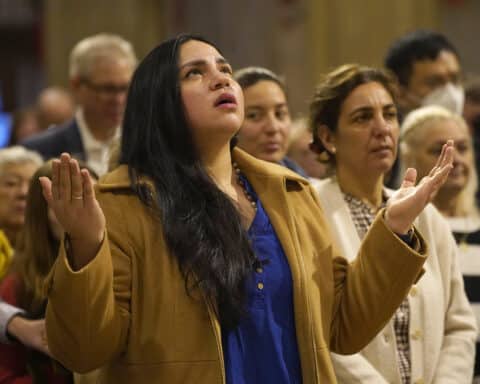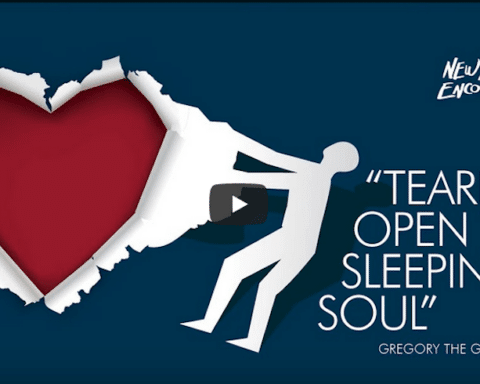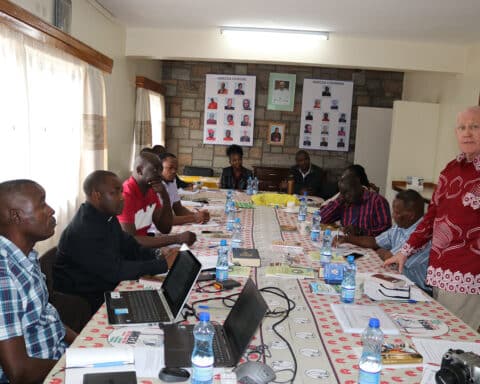There was a time — think back far enough, and you might recall it — when gathering in large groups for an event was not only common but desirable. In the halcyon days of 2019, we talked together, we laughed together, we ate together, we learned together, we prayed together. All in the same room. Six months into the coronavirus pandemic in this country, it’s almost hard to remember the good old days of sharing the same space with hundreds, or even dozens, of other human beings.
As Catholics, especially, we know the value of encounter — encounter that Our Lord himself modeled when the Word became flesh. So as COVID-19 slowly, and then predictably, made quick work of most planned Catholic gatherings this spring and summer, we missed out on the in-person opportunities of meeting people who share similar values and goals, of growing spiritually and intellectually, and of expanding one’s life experiences through travel and exploration.
Thankfully, with today’s technology, that was not the end of the story. Though not in person, we still have been able to convene, and over the past several months, virtual gatherings have not only replaced in-person events but have even offered certain advantages.
Consider this. In mid-June, a virtual Catholic Marriage Summit was held that offered more than 70 presentations on various topics and reached more than 38,000 couples. If you could participate in real time, the event was free. For a fee, you can access the content (plus bonus content) for as long as it resides on the internet. Couples joined from all over the world, and a corresponding Facebook page remains active with couples seeking support and offering guidance from one another on how best to live out their vocation. An event such as that — with the same caliber of speakers and the same number of participants — would have been nearly impossible to hold face to face.
Other virtual events in the Catholic space held in recent months have had similar success. With no travel costs or hassle and relatively no risk — if you don’t like what you’re experiencing, you simply walk away from your computer or put down your device — the barrier to entry is low. Why not take a chance?
When it comes to evangelization, the potential for impact at this time is great. Virtual events offer relatively unlimited reach, flexibility and an approachability for those who might be interested in growing in their faith or learning more about their vocation, but who are, for whatever reason, hesitant to commit to taking any major steps. We saw this potential during the weeks this spring when public Masses across the United States were canceled. Many people were tuning in — and some of those hadn’t been in an actual church in years.
As the pandemic has made online events the new normal and pushed the majority of Americans into finally figuring out how to log on to Zoom, it is imperative for Catholic leaders to think about how to create and host engaging virtual events that will appeal to those once thought to be out of reach. This will need to be an active choice that involves strategic decisions and dedicated resources. With our multitasking culture — especially online — keeping the attention of participants is a challenge. It is more difficult to develop personal relationships, and introductions and engagement can be more challenging. It can be harder, too, for presenters to feel comfortable talking to a device rather than a crowd. We will need to master the tools and technology, and we will need to put resources into creating engaging experiences. We will need to find ways to create authentic connections, even through screens.
At this point in the COVID-19 pandemic, the future remains uncertain. There are some people who are predicting that the large gatherings and events that were once so much a part of our lives are never returning. Time will tell. In the meantime, though, this is a prime moment for evangelization. This is the moment to expand our reach and to engage with those who are seeking God, but who have been hesitant to take that first step.
As we navigate our new reality, our mission remains unchanged: to bring the Good News of Jesus Christ to all the nations — via whatever means necessary.
Our Sunday Visitor Editorial Board: Gretchen R. Crowe, Scott P. Richert, Scott Warden, York Young





